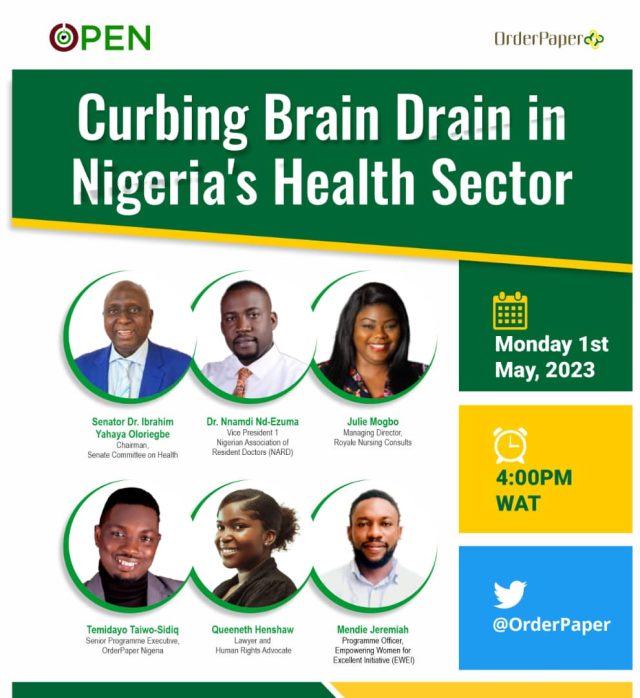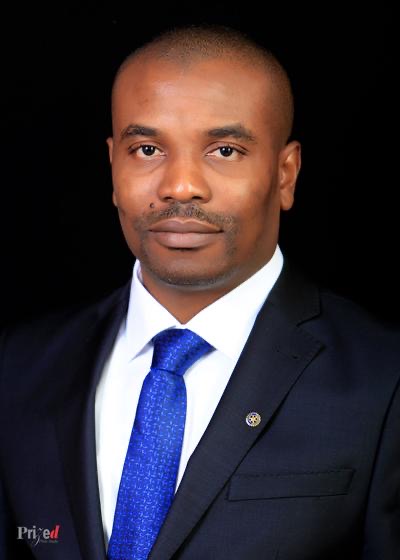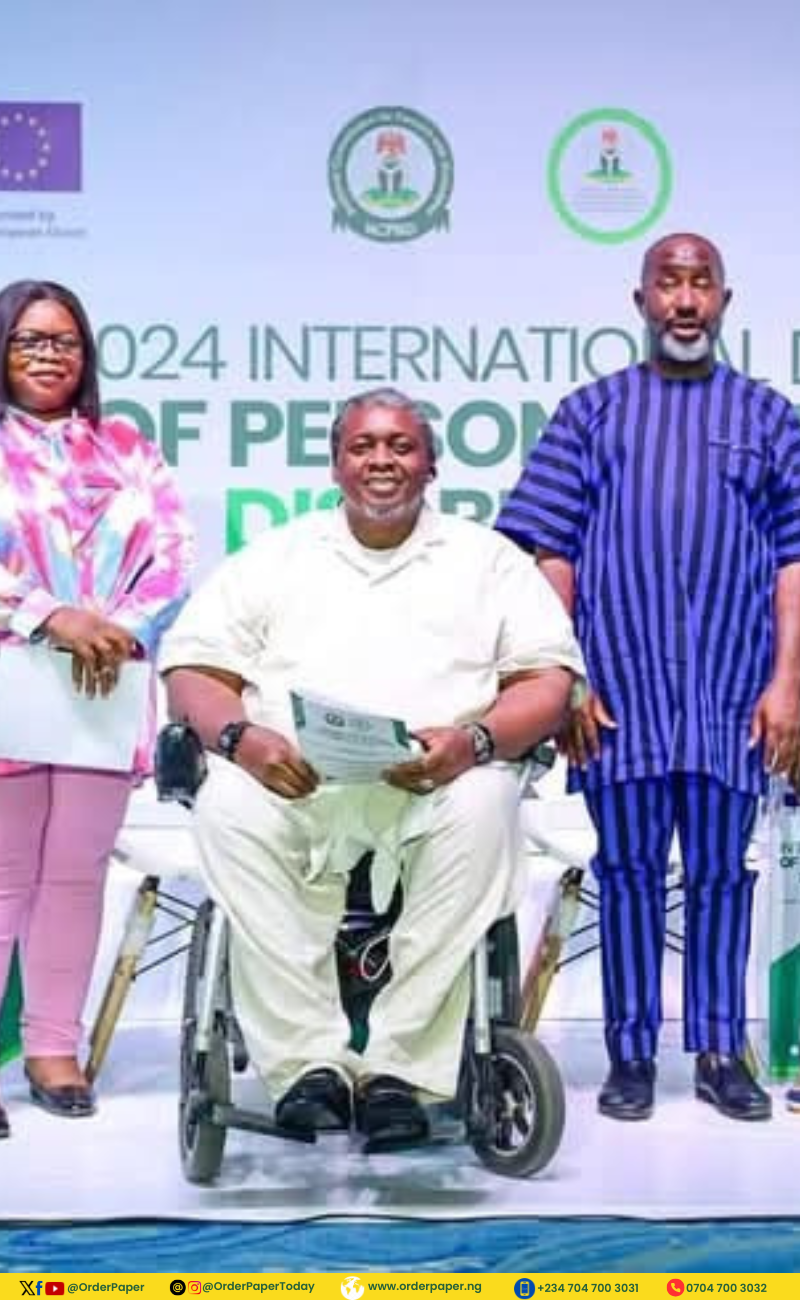In light of controversies surrounding a proposed amendment to the Medical and Dental Practitioners Act 2004, Stakeholders profer pragmatic solutions to challenge of Brain Drain in Nigeria’s Health Sector at May Day Dialogue put together by OrderPaper Nigeria.
READ ALSO: ROAD TO 10TH NASS: Can Wase make the Speakership chase?

With the issue of brain drain in Nigeria’s health sector still dominating conversations, Nigerian Resident Doctors have described the proposed amendment to the Medical and Dental Practitioners Act 2004 as a poorly researched bill incapable of addressing the challenges.
First Vice President of the Nigerian Association of Resident Doctors (NARD), Dr Nnamdi Nd-Ezuma, expressed this position on May 1 at a special episode of the OrderPaper Parliamentary Engagement Nigeria (OPEN) Dialogue held on Twitter to commemorate International Workers Day.
Emphasising that lawmakers were only beginning to realise the extent of brain drain and the decline in the number of health professionals in the Nigerian medical facilities, Dr Nd-Ezuma maintained that the bill was poorly researched and no consultations were conducted. He further described the bill as a restriction on the freedom of movement of all Nigerian citizens, explaining that such a coercive attempt to single out a particular profession makes it an incorrect approach to solving such a problem.
READ ALSO: EXCLUSIVE: Medical/Dental License Bill Sponsor, Rep Johnson speaks
“The Nigerian Association of Resident Doctors did a study last year in 2022, and we found out that every month, at least 100 – 150 doctors leave the shores of the country. And by the end of the year, it was hovering around 1,500 – 2,000 doctors who had left the shores of the country. Our projection is that these numbers would or have increased over time because the rate of application for some of these standing letters for release from the Council has also increased.
A few weeks ago, we heard that the Honourable Member in Charge of the Committee on Health also give an estimate of what the Nursing Council was experiencing, and it was also hovering in that same range, having a hundred or two hundred nurses leaving the country every month to other climes and in the past two years, we have seen an increase in that number.
We should not forget that the standard of the WHO is: 1 doctor to 600 patients, but now we are hovering around one doctor to 10,000 patients, and the country alone has 200 million or more, and as we go on, we have more people leaving and now we have less than 30,000 doctors in the country,” he added.
In proposing solutions to these issues, the NARD Vice President remarked that remuneration for resident doctors is essential compared to any other remedy aimed at lessening the cases of migration. He noted that it wouldn’t completely stop migration but instil a sense of patriotism in them.
“Budgetary allocation is very, very important. In 2001, there is what is called the Abuja Declaration, where Heads of State in different African countries came together in Abuja and, after deliberations, decided that for your health sector to actually move progressively and achieve the desired aim in terms of reducing the scourge of health in Africa, there must be adequate funding at the budgetary level. And at that declaration, it was stated that a minimum of 15% of the budget should be allocated to the health sector.
It will surprise you that it was signed in Abuja by all Heads of African countries, and up till now, even as of the last budget, I think what was allocated to the health sector was 5.7%.
Remuneration remains top of the tree on this because if people are properly remunerated, or the right things are done to keep people back in the country, such as making laws that makes that essential service attractive, there will be a sense of patriotism,” he added.
READ ALSO: Senator Oloriegbe: ”Medical/Dental License Bill violates Right to Freedom of Movement”
Speaking on the cause of the menace, Queeneth Henshaw, a Lawyer and Human Rights Advocate who was also a panellist on the show, attributed the emigration of health practitioners to low pay and poor working conditions in the country.
“Most of these people leave for a variety of reasons, but I’m going to be talking about Nigeria in particular. My perspective is coming from the argument that has gone on so far from the proponent of the bill and the person that owns it as well. Some of the issues that were raised are the unsatisfactory working conditions in Nigeria, the working conditions are nothing near satisfactory, and then we have low pay and a high level of economic equity and security challenges,” she noted.
Ms Henshaw, who further explained that brain drain is not peculiar to Nigeria, faulted the approach of the bill sponsor, Rep. Ganiyu Abiodun Johnson, towards solving the challenge. She described the solution canvassed by the lawmaker as trying to work only on the symptoms of a diseased person rather than get to the root of the infection.
“Brain drain is very prevalent in developing countries or underdeveloped countries, and Nigeria falls under that category. From the proponent, he said his reason for putting this forward is because taxpayers’ monies were put in to subsidise the fees that the doctors and dental students get to pay in university, and if you look at the rate in other countries or private universities, you’ll see that the rates are actually higher.
His reasoning is that these taxpayers should be able to give back to society, but then, he is not taking cognisance of the issues that are affecting these young doctors because I don’t think that if you have access to better working conditions, you wouldn’t want to stay behind. These are the things that are not being talked about, and if you look at the whole controversy, rather than trying to get to the root of the problem, rather than trying to cure the disease, this bill is seeking to work on only the symptoms. That’s the brain drain we’re seeing now,” she argued.
Other panellists, as well as members of the audience on the show, noted that there has been a rise in the emigration rate of Nigerians over the last seven years, especially Nigerian health practitioners, and with the mass exodus of these professionals to other countries, the state of the already fragile health system is likely to worsen. References were also made to many doctors on the street seeking employment amidst the shortage of doctors in health facilities across the country.
READ ALSO: MVP Hall of Fame: 20 National Assembly Members make Semi-Final shortlist
The OPEN (OrderPaper Parliamentary Engagement Nigeria) Space dialogue held on Monday, is an initiative of OrderPaper Nigeria, the country’s pre-eminent legislative/public policy think-tank. This special episode featured the Chairman of the Senate Committee on Health, Senator Ibrahim Oloriegbe (APC, Kwara), Dr Nnamdi Nd-Ezuma; 1st Vice President 1, Nigerian Association of Resident Doctors (NARD), Julie Mogbo; Managing Director of Royale Nursing Consults and Queeneth Henshaw; a Lawyer and Human Rights Advocate.
Centered on ‘Curbing Brain Drain in Nigeria’s Health Sector,’ Temidayo Taiwo-Sidiq, a Senior Programme Executive at OrderPaper Nigeria, moderated the conversation. It, amongst other subjects, spotlighted a recent bill that scaled second reading in the House of Representatives seeking to amend the Medical and Dental Practitioners Act, CAP. M379, LFN, 2004.
The proposed legislation is with a view to mandating any Nigeria-trained Medical or Dental Practitioner to practise in Nigeria for a minimum of 5 years before being granted a full licence by the Council in order to make quality health services available to Nigerians; and for related matters.



